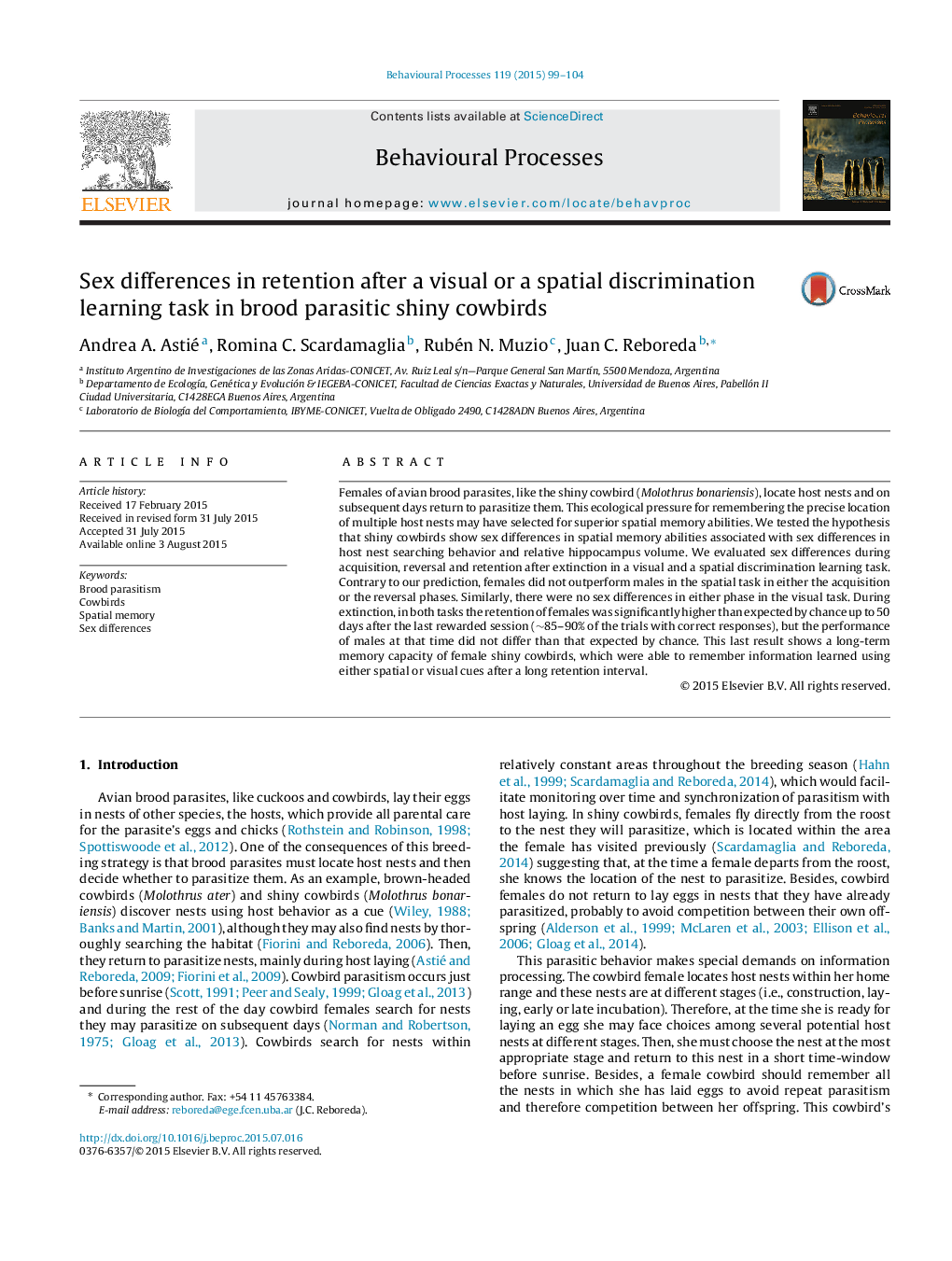| Article ID | Journal | Published Year | Pages | File Type |
|---|---|---|---|---|
| 2426524 | Behavioural Processes | 2015 | 6 Pages |
•We studied sex differences in memory in brood parasitic shiny cowbirds.•We tested differences during acquisition, reversal and retention in a visual and a spatial discrimination memory task.•In both tasks, there were no sex differences in the acquisition and reversal.•During extinction, the retention of females was higher than that of males in both tasks.
Females of avian brood parasites, like the shiny cowbird (Molothrus bonariensis), locate host nests and on subsequent days return to parasitize them. This ecological pressure for remembering the precise location of multiple host nests may have selected for superior spatial memory abilities. We tested the hypothesis that shiny cowbirds show sex differences in spatial memory abilities associated with sex differences in host nest searching behavior and relative hippocampus volume. We evaluated sex differences during acquisition, reversal and retention after extinction in a visual and a spatial discrimination learning task. Contrary to our prediction, females did not outperform males in the spatial task in either the acquisition or the reversal phases. Similarly, there were no sex differences in either phase in the visual task. During extinction, in both tasks the retention of females was significantly higher than expected by chance up to 50 days after the last rewarded session (∼85–90% of the trials with correct responses), but the performance of males at that time did not differ than that expected by chance. This last result shows a long-term memory capacity of female shiny cowbirds, which were able to remember information learned using either spatial or visual cues after a long retention interval.
